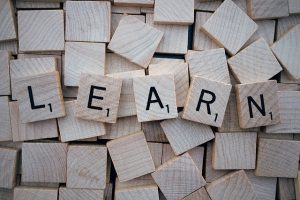Tips for Advancing Your Class 10 Board Exams

In every student’s academic life, Class 10 is a significant milestone. The performance in board exams establishes a trajectory for future educational and career decisions. In fact, if you decide to pursue science, commerce, or arts in upper secondary school, your class 10 board exam results will make a difference in your future. To perform well and succeed in your exams, students need to focus on both studying diligently and effectively. Here are some handy tips to help you prepare effectively and achieve excellent results on your Class 10 board exams.
Understand the Syllabus Thoroughly
The initial step towards preparing for the Class 10 board exams is to familiarise oneself with the syllabus thoroughly. The syllabus provides an outline of the topics that will be included on the exam, and the weighting of chapters reflects the impact these topics will have on students’ performance. It is common for students to devote unnecessary time to practising a minor topic. Consider taking a few minutes to carefully review a syllabus before studying or practising anything, and make a list of all chapters in the syllabus from a marks distribution perspective. Prioritise practising the heavier chapters, but try not to ignore the smaller chapters completely.
Knowing the syllabus well will help you create a practical study schedule where no important topics are excluded from students, and help you find the right balance as you practice.
Create a Realistic Study Plan
Once you have a clear understanding of the syllabus, it’s time to generate a study timetable based on your daily schedule. Break down your study hours into small, focused study sessions rather than long, exhausting blocks. Incorporating short breaks will keep your mind fresh and avoid burnout. Assign a specific time block to study subjects, and revise regularly.
When generating your study plan, place challenging subjects or topics you find challenging first and foremost. As exams near, transition your focus to revision and practice papers. Consistency is worth more than long hours of study, so sticking to your timetable is vital.
Practice with CBSE Previous Year Question Papers Class 10
Working your way through the previous year’s question papers for class 10 CBSE exams is one of the most effective ways to prepare. It will give you a perspective on the exam format, question types, and difficulty level. You will identify essential topics while gaining a sense of how questions are structured.
When reviewing previous question papers, complete them under exam conditions, ensuring you time yourself and complete the paper within the allotted time. This will help you successfully manage your time on the day of the exam. Once you have completed each paper, carefully check your answers and determine your weak points.
Regular practice with CBSE previous year question papers class 10 will increase confidence, speed and accuracy. Solving these papers will also help you understand the marking scheme and the pattern for the repeated questions, which will be beneficial.
Solve Class 10 Sample Papers Regularly
Another effective tool for preparation is the class 10 sample papers. These sample papers have been prepared based on the latest CBSE exam pattern and syllabus, and will aid students in recognising the types of questions that may appear in the board exam in class 10.
By solving Class 10 sample papers regularly in the Class 10 preparations, you can check your level of preparation and complete the exercise on time. The sample papers will also indicate areas of strength and weakness, allowing you to adjust your preparation time accordingly. Many toppers/teachers suggest that you should solve at least one sample paper every week during the last two months of your class 10 preparations.
Please note that CBSE provides official sample papers on its website every year. The official sample papers should be your priority because they provide insight into the most up-to-date question pattern and mark allocation. Consider also consulting educational publishers and the online learning platforms you use for high-quality sample papers.
Revise Smartly and Consistently
Revising is essential to retaining what you’ve learned. Even if you have engaged in the most thorough preparation, nothing may come together without thorough revision. Start revising ahead of time – don’t wait until a few weeks before the examination period.
When you are completing work at home, make small, rough notes so you can develop a shorthand that works for you and will help as your revision goes through the process. Prioritising something short and relevant is hugely beneficial when revising, so make sure to point out some of the most essential formulas/terms to remember and commit them to memory. Use the last few weeks of your revision to concentrate more on these notes than simply reading a textbook–remember, you can still add short notes to the pages of the textbook or interesting diagrams.
Along with short notes, you will also want to revise any diagrams/maps/charts, as visual forms of memory will help you cap off substantial amounts of points on papers.
Strengthen Conceptual Clarity
Instead of rote memorisation, concentrate on developing a clear understanding of concepts. The CBSE board examinations tend to assess concept knowledge, rather than purely recall. This applies to all types of subjects, whether it is maths formulas, science theories or basic grammar rules – you should always try to understand the logic behind the concepts.
Watch YouTube videos, go to doubt sessions, or discuss things you find challenging with teachers and classmates. Once you get your fundamentals clear, you’ll be able to tackle any type of question, whether it’s standard, application-based, or analytical.
Manage Time Effectively During Exams
Managing your time during the examination is equally as significant as preparing for the exam. When you have the answer booklet in front of you, open the paper and briefly review all the questions. Take note of any questions that make you feel less confident and record your level of confidence for each one before proceeding. Start the paper with the questions you feel most confident in.
As you start the examination process, manage your time wisely! You’ll want to keep a watchful eye on the clock, but do not rush—this will keep your thought processes stable, and you will be on target with timing. Reserve the final 10–15 minutes for going back through the paper and making any revisions or corrections to your papers. Don’t spend too much time on any one question. Practice the Class 10 sample papers along with the CBSE previous year question papers to practice your timing accurately, and like magic, you will master your exam timing without your efforts.
Maintain a Healthy Lifestyle
Good health is important in doing well on exams. Eat healthy food, drink plenty of water, and get enough sleep. Don’t study all night before your exam; you will just be tired and unable to concentrate. Try to incorporate short physical activities, such as walking or yoga, to help keep your mind relaxed.
Healthy bodies equate to sharp, active minds, which are essential in the learning and recall process when taking exams.
Stay Positive and Confident
Lastly, maintain a positive attitude during your preparation stages. One of the most challenging troubles of studying is unnecessary stress and anxiety, which can be avoided by trusting your work. Surround yourself with friends and family who are understanding and involved in activities that inspire you.
The emphasis is on thinking positively and trusting in your preparation, as confidence is the route to success. Stay calm and know that even if a difficult question appears, do not panic. Continue to the next question and return to the difficult one if time allows.
Conclusion
To achieve success in the Class 10 board examinations, consistent effort, thoughtful preparation, and a positive mindset are key. You can enhance your performance by establishing a disciplined study plan, reviewing the syllabus thoroughly, and completing CBSE previous year question papers class 10 and class 10 sample question papers.
Overall, stay positive, confident, focused, and disciplined through the preparation process. Success in the Class 10 board exams is more than just hard work; it comes from brilliant strategy, consistent practice, and maintaining a positive mindset. By following the above methods, you’ll be on your way to performing well on the exams and may be one step closer to accomplishing your personal academic goals!






